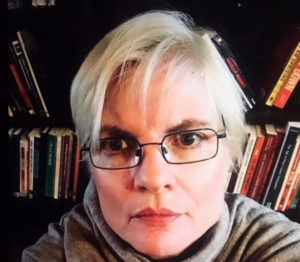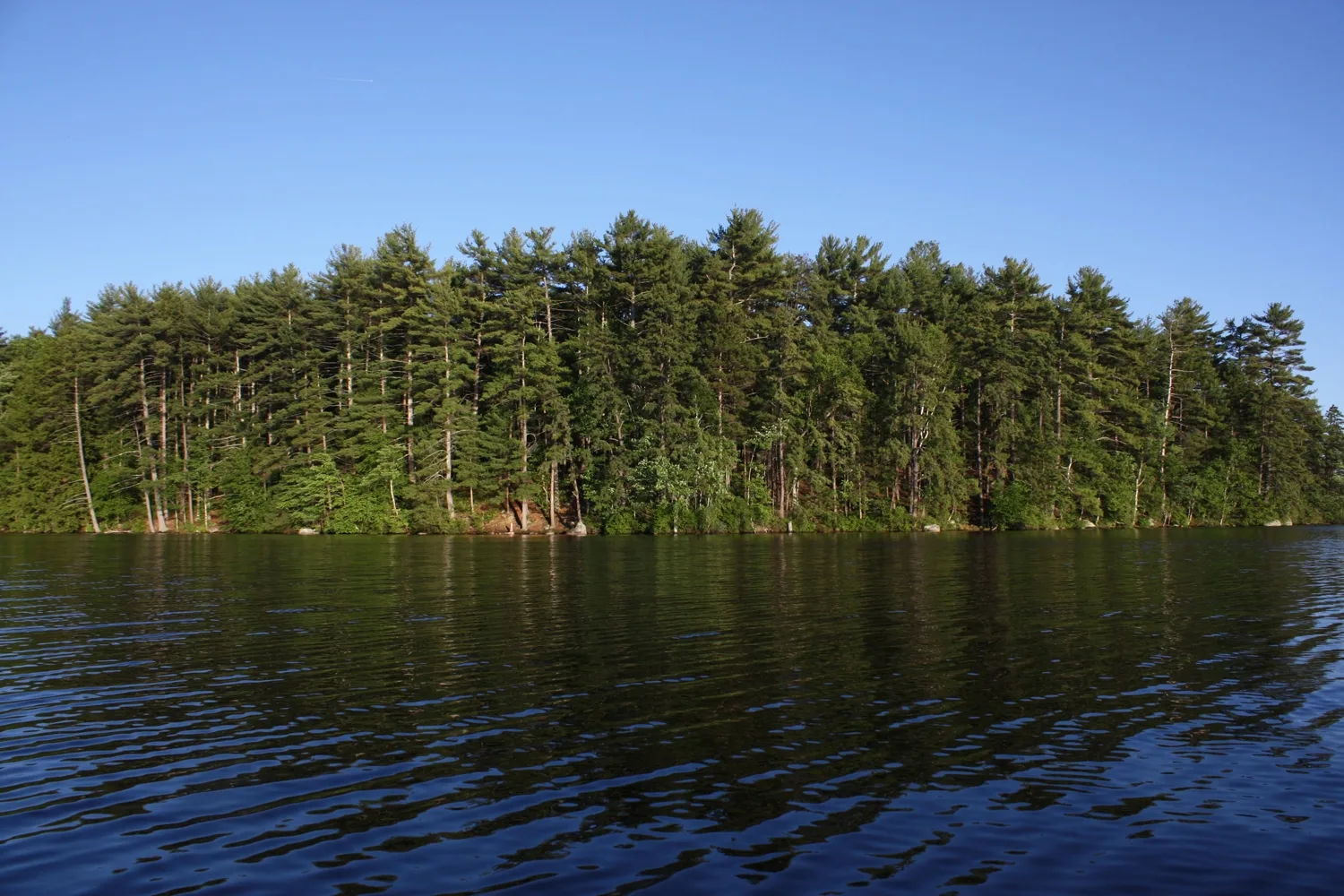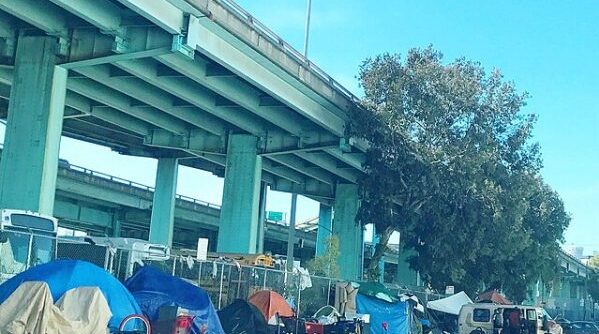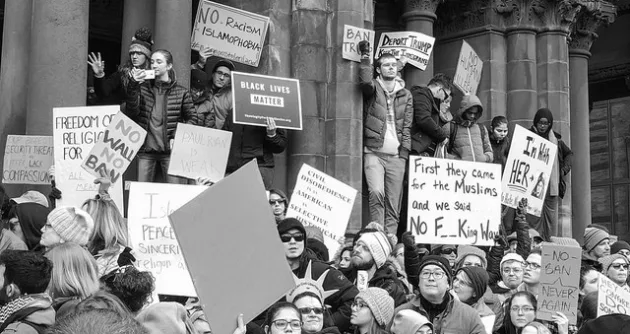By Barbara Peterson
Nottingham, New Hampshire is fighting for a clean and healthy community
Energy democracy works for local control of our energy sources.
The global movement for energy democracy works with communities for local control of renewable sources of energy to help ensure equity, reliability, availability, and affordability. As stated by Denise Fairchild and Al Weinrub in the Introduction to their edited volume Energy Democracy: Advancing Equity in Clean Energy Solutions (2017), energy democracy is “a way to frame the international struggle of working people, low-income communities, and communities of color to take control of energy resources from the energy establishment and use those resources to empower their communities.” (p. 6). It is not enough to simply push corporations to adopt renewable energy; such a path may provide renewable, greener options, but these options will primarily benefit corporations and wealthier communities at the continued, extreme cost to the working-class poor and people of color. What is needed is a path that puts the power into the hands of local people to determine, manage, and even own the energy production that will best suit the needs of their community.
More and more folx are recognizing the value in working for deep-rooted, structural, and systemic changes by engaging in community advocacy and activism. The literature on energy democracy expounds on the efforts of local groups engaging in collective action to take on large fossil fuel corporations to gain control over the communities’ economic, environmental, and cultural futures. Craig Morris and Arne Jungjohann, in Energy Democracy: Germany’s ENERGIEWENDE to Renewables (2016), sees an opportunity to call for urgent action now because our current push for “energy transition represents a one-time window of opportunity to democratize the energy sector” (p. 13).” The time is now to ride the wave of this new movement for radical changes in how we not only switch to healthier renewables but how we stand with historically marginalized peoples to author their own goals and needs and to fulfill them through equitable democratization of energy production and distribution.
Nottingham, New Hampshire is fighting to uphold energy democracy’s principles.
In 2008, a resident community group, now called the Nottingham Water Alliance (NWA), drafted and proposed for town meeting, the Nottingham Water Rights and Self-Governance Ordinance, a rights-based ordinance created to protect their town’s water. USA Springs was slated to come into Nottingham to withdraw 439,000 gallons daily, bottle it, and sell it overseas, If allowed to do so, Nottingham residents would have suffered from lowered levels of groundwater, which forces wells to be dug deeper (which is costlier), and the withdrawal contaminates groundwater with harmful chemicals that jeopardize the health and wellbeing of citizens through the process of extraction.
More recently, working with Michelle Sanborn from the Community Environmental Legal Defense Fund (CELDF), NWA developed a new rights-based ordinance, which passed in March 2019. This Freedom from Chemical Trespass ordinance was written and passed to protect Nottingham from the harmful impacts of noxious chemicals being dumped in their town. The Ordinance prohibits any corporate or government agency from disposing of toxic waste in Nottingham.
But the fight continues. Currently, NWA is working with Michelle Sanborn and attorney Kira Kelly, contracted with CELDF, to uphold a town ordinance that was voted in by Nottingham residents in March 2019. This Freedom from Chemical Trespass ordinance protects community members and ecosystems from the harms caused by noxious chemicals polluting the soil, water, and air.
NWA chair Peter White cannot understand why Brent Tweed of G&F Goods, LLC has a problem with the ordinance. Tweed moved into Nottingham just before the ordinance passed, and he is weaponizing corporate personhood privileges to challenge the law. “He runs an entirely online business. I wouldn’t think his personal or business rights would be affected by this ordinance.” Far from interfering with the disposing of cardboard, which Tweed’s lawyers argue in his lawsuit against the ordinance, the law protects the people and ecosystems of Nottingham from intentional corporate dumping of toxic waste. The ordinance goes after state and corporate authority to pollute in Nottingham. Tweed’s lawsuit against the ordinance was heard in the Rockingham Superior Court. Because the ordinance was passed by a legal and binding vote, it is the sworn duty of the Selectmen to defend it. Yet, as White said, “Our selectman chose not to defend it, even though they promised to do so.”
Brent Tweed argued that the ordinance is not sufficiently clear on what does and does not count as an actionable offense. He claimed to be “chilled” from doing business under such a vague threat of $1000/day fine plus liability for harm done to ecosystems. He wanted the ordinance declared unconstitutional, contrary to state law, and unenforceable. The ordinance does, however, specify what sorts of harms it opposes.
The ordinance reads that Nottingham will be free from “chemical trespass resulting from the physical deposition or disturbance of toxic wastes, which, for purposes of this ordinance, includes petroleum refining wastes, coal combustion wastes, sewage sludge, heavy metals, chemical residue from manufacturing processes, mining residuals, radioactive wastes, or any other waste that poses a present or potential hazard to human health or ecosystems [and] … . from all corporate activities that release toxic contaminants into the air, water, and soil, including chemical trespass resulting from the physical deposition or disturbance of toxic wastes.”
Certainly, it may seem “chilling” to corporations who want free reign to put profit over the health and wellbeing of the community. However, if we do not take such measures to protect our environment, local economies, and the purity of water, soil, and air, the degradation to our capacity to sustain human life will become far more chilling than the worries of any single corporation.
The Rockingham Superior Court ruled in favor of Tweed.
According to the NWA, they are defending their rights as stated in the New Hampshire Constitution, Article 1, established in 1784: “All men are born equally free and independent; Therefore, all government of right originates from the people, is founded in consent, and instituted for the general good.” When the state and corporate powers take away the ability of local people to determine what is good, healthy, and sustainable for their communities, we risk becoming an oligarchy: a government ruled by a few over the masses without their informed consent.
But they weren’t even allowed to “intervene” to defend the ordinance. This despite the fact that even according to the State of New Hampshire website, an “intervener” is: “Any person shown to be interested may become a party to any civil action upon filing and service of an Appearance and pleading briefly setting forth his or her relation to the cause.” The Supreme Court ruled that NWA had no legal standing, and attorney Kelly defended her clients’ rights as intervening parties in her appeal to the court.
A community rights-based approach shows the power of local control. Each community is unique in its cultural make-up, land use, economic opportunities, public and service institutions, and thus its needs and interests. It is therefore important, as the literature on energy democracy notes, that each community devise and develop their own methods of empowerment and change. The NH Community Rights Network (NHCRN) has been working to empower ordinary citizens, many of whom do not see themselves as “activists,” but residents who care about the health and wellbeing of their communities, to effectively face down the profit-over-people motives of mega corporations.
There are many legal doctrines that give corporations far more power than people. These doctrines have been enshrined since the late 1800s and early 1900s due to the incessant lawsuits corporations have thrown against local, state, and federal governments to muscle their way into leveraging more and more power. One such doctrine is ceiling state preemption which is the authority of the state to unilaterally override local laws and policies. A balanced relationship between state and local is needed, but what we have instead offers no power or protection for local decisions, especially when they challenge the status quo.
Simultaneously, corporations, through charters that are issued by the state, have far more legal standing than people, ecosystems, or local governments, giving corporations the authority to use this power to override the expressed interests and needs of state and local residents. The U.S. Supreme Court has given these corporate charters the status of legal contracts and privileged those contracts in what constitutional anthropologist Jane Anne Morris called “an orchestrated corporate effort to escape state regulation.”
Of course, there’s also corporate “personhood.” These rights include equal protection under the law, freedom of speech, the Fourth Amendment privacy right to keep their poor working conditions and environmentally harmful procedures secret. If anyone interferes with their ability to operate, corporations are entitled to be compensated for present and future lost profits.
This is all an impediment to energy democracy.
Can small communities defeat large corporations? Asking that a small community effectively challenge a multi-million-dollar corporation that is protected by state and federal laws would seem to be sending David against Goliath, a highly improbable task outside biblically heroic tales. Yet, as Marshall Ganz shows in Why David Sometimes Wins, there is a way to “turn what we have into what we need to get what we want,” and this is precisely what CELDF helps prepare communities to do. Following the spirit of energy democracy principles, CELDF works with communities when invited to help locals design and set up structures that block unwanted corporations from moving in. This challenge to power is an essential first fight on the road to energy democracy.
Because it’s near impossible to beat corporations at their own game, we must change the game. CELDF knows of the painfully slow and often unsuccessful process of fighting regulatory agencies, that end up serving to buffer corporations from the will of communities, and ultimately legalizing and legitimizing harmful activities. That’s why they play by a different set of rules. They challenge corporations head-on.
It is important to point out that CELDF is not anti-corporation; rather they are pro community empowerment. Corporations can and are beneficial to local communities, bringing jobs and needed services and industry. However, when one is a threat to local residents and ecosystems, CELDF helps communities block such threats, not by slightly reducing the level of harm, but by preventing the harm entirely.
Members of different towns and cities across New Hampshire have worked with the guidance of CELDF to create Rights-Based Ordinances (RBOs) that have leveraged enough power to either stop unwanted corporations from moving in or prevent them from engaging in harmful practices. While not always 100% successful, engaging in these fights pushes the right buttons for advancing real energy democracy. Challenging corporate supremacy is formidable. RBOs are not a silver bullet, but a tool to substantively engage in the fight to re-orient power that energy democracy requires.
Put simply, RBOs fight to put our democracy back into the hands of people. They empower local residents to block corporate activities. They are ordinances (municipal decrees) created by volunteer community members and supported by a majority vote in a local municipal meeting, and they delineate rights and protections to set a higher standard for human rights that corporations may not degrade.
RBOs are an exercise of self-determination. They are an exercise of the type of local control that energy democracy movements world-wide are working to advance. In New Hampshire, according to the NH Community Rights Network (NHCRN) website, fully 12 RBOs have been written and voted in since 2006 to protect against such things as water extraction, unsustainable energy infrastructure, industrial ridgeline wind projects, gravel mining, and religious identification requirements.
The posting of this piece is a reflection of CELDF’s commitment to featuring diverse perspectives and ideas in the quest to bring about a community rights and rights of nature existence into full being.
References Johnson, D. and Lewis, A. (2017) Organizing for energy democracy in rural electric cooperatives in Energy Democracy: Advancing Equity in Clean Energy Solutions, Denise Fairchild and Al Weinrub (Eds.). Island Press: Washing, D.C. pp. 93-112.Morris, J.A. ( 2008). Gaveling Down the Rabble: How “Free Trade” is Stealing our Democracy. The APEX Press. Boulder, CO.

Barbara Peterson, PhDWGS and EDU Faculty at UNH, Durham; Founder/Lead Scholar & Educator for Nonviolent Community Action; and Author of Reclaiming Power: Building a Stronger Resistance in the Age of Trump
Pawtuckaway Park by Andrew Reynolds



